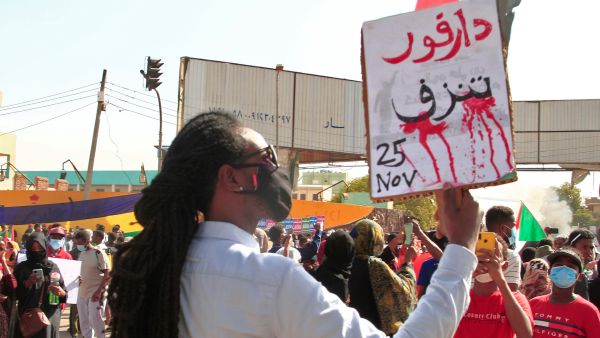An alleged former Sudanese militia leader -- facing allegations that he committed war crimes and crimes against humanity in Darfur nearly two decades ago -- pleaded not guilty to the 31 charges against him on Tuesday.
As his trial in the International Criminal Court that began in The Hague, defendant Ali Kushayb, also known as Ali Muhammad Ali Abd-Al-Rahman, said: "I reject all these charges. I am innocent of all these charges."
Today marks the beginning of the trial against Ali Muhammad Ali Abd–Al-Rahman, commonly known as “Ali Kushayb,” the ruthless leader of the Janjaweed that both commanded and recruited the militias that carried out horrific attacks upon innocent men, women, and children of #Darfur. pic.twitter.com/nw2Ti51I18
— Darfur Women Action Group (@DWAG6) April 5, 2022
Kushayb was on the run for 13 years before turning himself in to authorities in June 2020.
The atrocities that he is accused of are part of the first genocide of the 21st century.
The war crimes investigation has been led by International Criminal Court Prosecutor Fatou Bensouda, who said in 2020 that between 2003 and 2004, Ali Kushayb "allegedly commanded thousands of "Janjaweed" militia to implement a counter-insurgency strategy by the then-government of Sudan, which resulted in the commission of alleged war crimes and crimes against humanity in the Darfur region of Sudan."
The Darfur Women Action Group, founded by a survivor of the genocide, tweeted on Tuesday that Kushayb was "a ruthless leader" who "both commanded and recruited the militias that carried out horrific attacks upon innocent men, women, and children of Darfur."
Ali Kushayb is accused of 32 counts of war crimes and crimes against humanity, including persecution, pillaging, murder and rape, in a bloody rebellion in Darfur, western Sudan, two decades ago. His trial at The Hague has begun. https://t.co/Z8MsigcsaV
— New York Times World (@nytimesworld) April 5, 2022
Prosecutor Karim Khan on Tuesday detailed how Al-Rahman and other alleged members of the Janjaweed militia terrorized and killed children between 2003 and 2004.
"Rapes against women and girls, children being targeted and attacked and abducted, men and boys amongst others, being executed and killed, homes being wantonly destroyed, people fleeing with nothing. For many, their lives never to be the same again," Khan said.
The United Nations said in 2013 that an estimated 300,000 people were killed and 2.5 million displaced during the time that the Sudanese government-employed militia groups like Janjaweed.
This article has been adapted from its original source.










